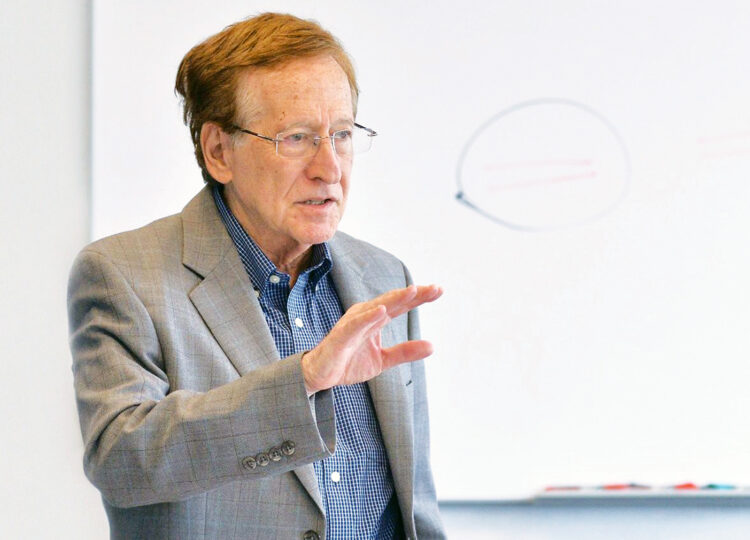Scholar Rabbi Michael Cook, husband of Temple Beth Or’s rabbi, dies at 79

Rabbi Michael Cook, the only American rabbi to serve as a full professional chair in New Testament, with Hebrew Union College-Jewish Institute of Religion, died March 30 at 79 in Cincinnati.
Over 45 years, Cook taught thousands of HUC-JIR students — many of whom became rabbis — empowering them, in his words, “to guide their constituents to live as Jews in a Christian environment, navigating through challenging issues such as intermarriage, blended families, Jews-by-choice, ministerial associations, interfaith Seders, pulpit exchanges, adjunct professorships at Christian colleges and seminaries, Jewish college-student identity, Hillel directorships, military and hospital chaplaincies, antisemitism, missionizing, millennialism, Christian Zionism, interfaith debates over Israel advocacy, etc.”
Cook was the author of the 2008 book Modern Jews Engage the New Testament: Enhancing Jewish Well-Being in a Christian Environment. He retired from HUC-JIR in July 2019.
“Assiduous scholarship and painstaking pedagogy transformed Michael into a master scholar of the intertestamental period during which we study Judaism’s and Christianity’s beginnings,” said Rabbi Gary P. Zola on the virtual memorial shiva service held in Cook’s memory, April 5. Zola is the executive director of the Marcus Center of the American Jewish Archives and professor of the American Jewish experience and Reform Jewish history at HUC-JIR in Cincinnati.
“Michael became a pioneering academic ambassador from the Jewish world to the world of Christian scholars. Or, as one colleague observed, ‘Michael Cook opened Christian scholars’ eyes to a new way of looking at the intertestamental period and to Jewish-Christian relations.’”
Caryl and Don Weckstein, among the founders of Temple Beth Or in Washington Township, recalled Cook as part of the congregation “since day one.”
“It was Rabbi Cook that suggested to Alan Steinharter that we interview Rabbi Judy Chessin for the position of rabbi at Temple Beth Or,” Don Weckstein told The Observer.
Chessin received her rabbinic ordination from HUC-JIR in Cincinnati in June 1984. She and Cook were married that November, and Temple Beth Or held its first Shabbat service, with Chessin leading, Jan. 25, 1985.
Don Weckstein said Cook was an integral part of the congregation.
“He really attended every service and congregational event except those very few times that he had a commitment of his own,” he said. “He visibly enjoyed Rabbi Chessin’s sermons. He would smile, and you could see that he was really a part of what she was saying, and that was very evident when she would have a humorous story. For years, Michael was an important participant in our Yom Kippur afternoon (programming) aspects. He always had a presentation. Many people thoroughly enjoyed it.”
“Michael could be a demanding and exacting teacher and colleague,” Chessin said of her late husband during the virtual shiva service. “He stubbornly extracted excellence from his family, from his students, from his colleagues, and from each institution of which he was a member. Sometimes that was not always welcome. But his way only came from his desire to pass on the wisdom which he had developed and the truths that he had conveyed. And he wanted to do so with humor and accessibility. And that was his Torah.”
Cook is also survived by five children and five grandchildren.
— Marshall Weiss
To read the complete May 2021 Dayton Jewish Observer, click here.

